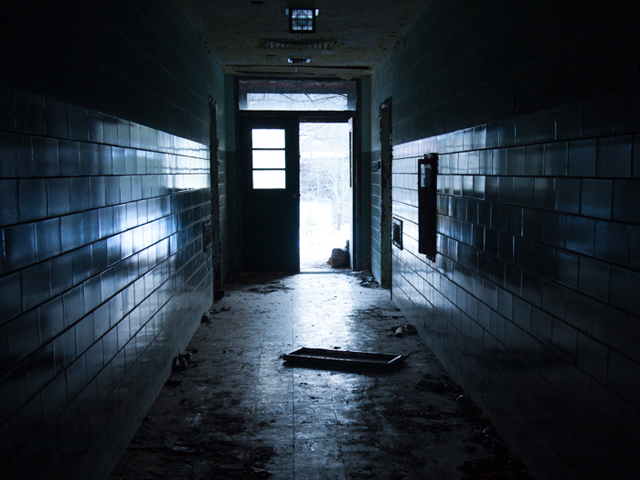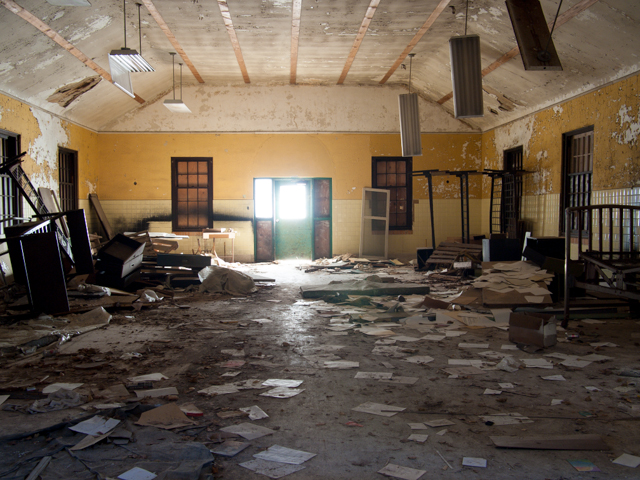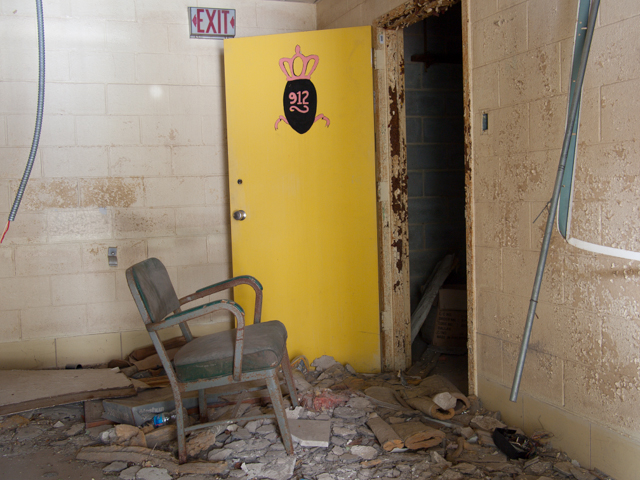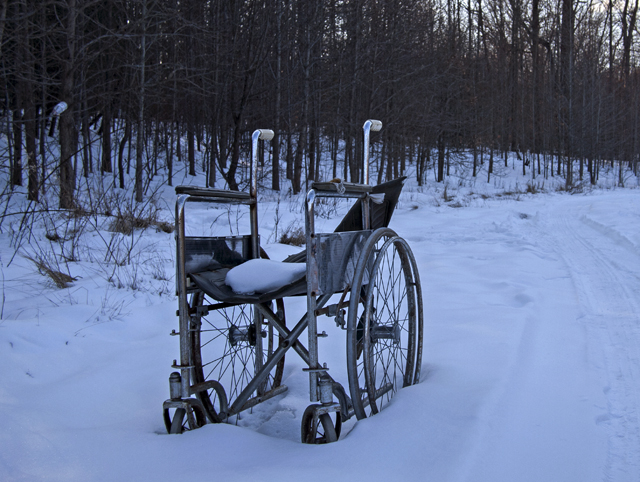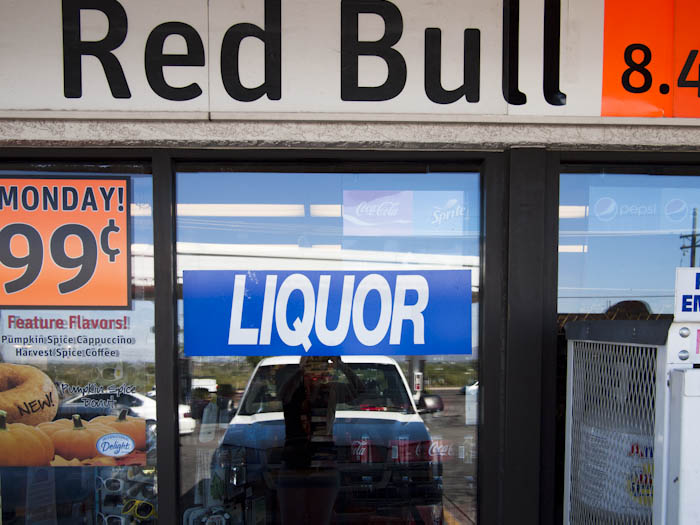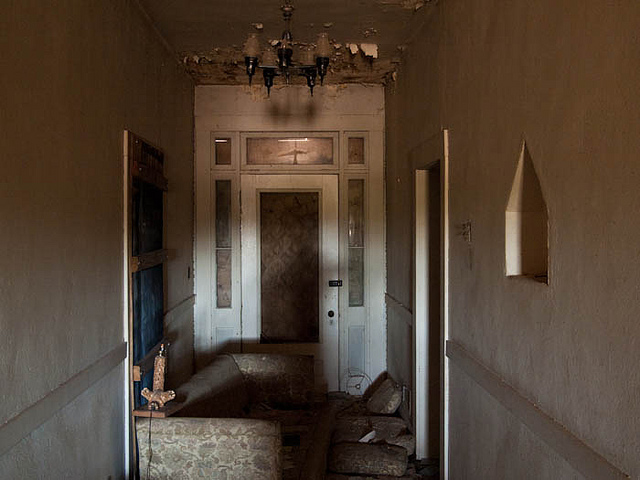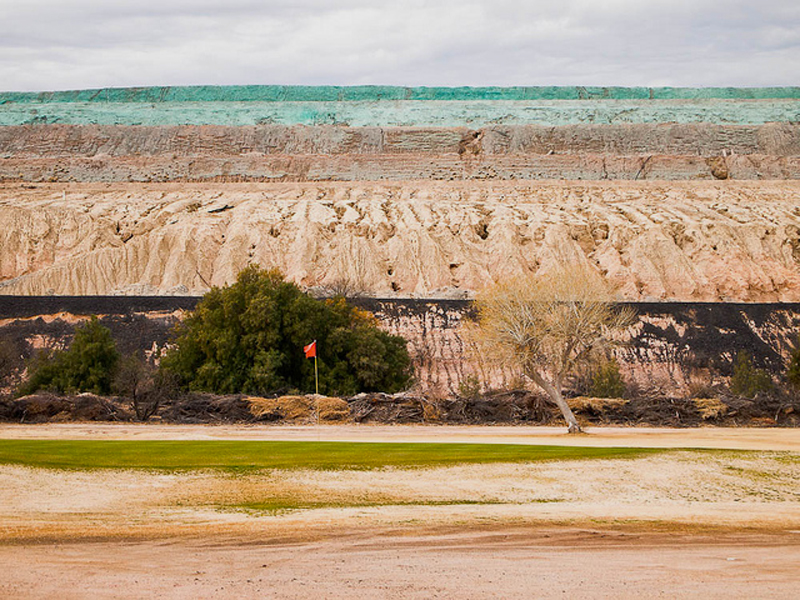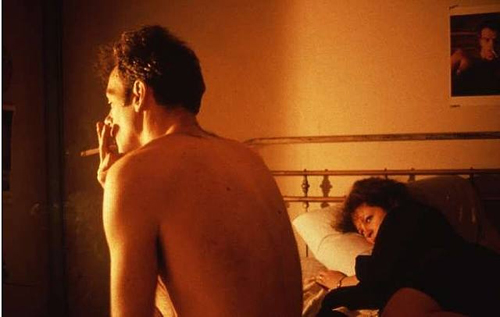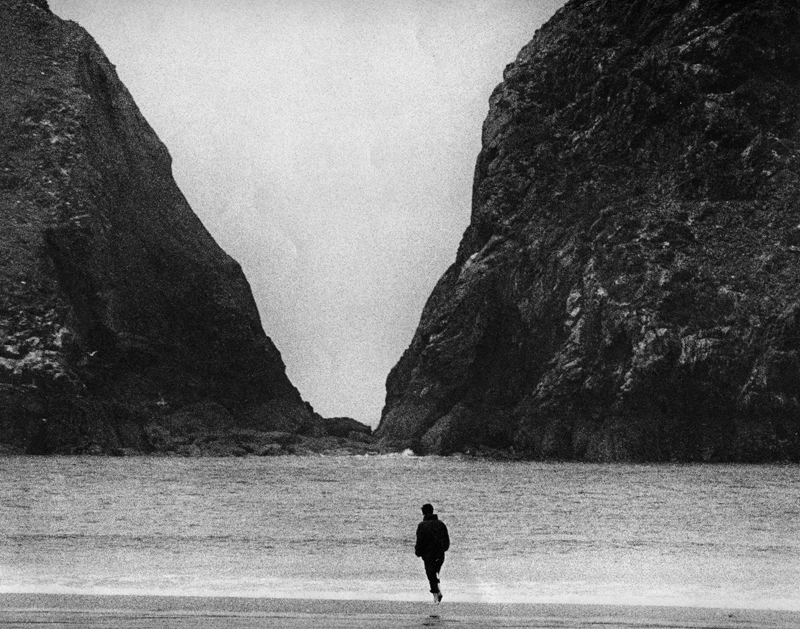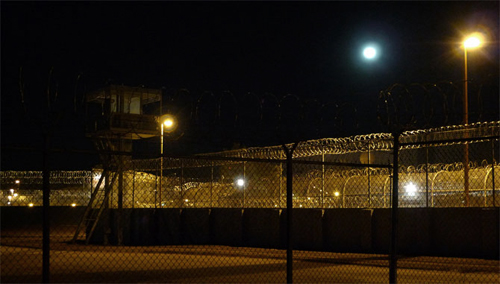It has been over a year since my friend and I visited the haunted compound of the abandoned Forest Haven mental asylum and since I began chronicling what we discovered there: a horrific testament to bureaucracy at its worst and the ragged remains of so many lives that wasted away on the outskirts of Washington D.C. (More…)
Author: Kim NicoliniKim Nicolini is an artist, poet and cultural critic living in Tucson, Arizona. Her writing has appeared in Bad Subjects, Punk Planet, CounterPunch and The Berkeley Poetry Review. She recently published her first book,Mapping the Inside Out, in conjunction with a solo gallery show by the same name.
Kim Nicolini is an artist, poet and cultural critic living in Tucson, Arizona. Her writing has appeared in Bad Subjects, Punk Planet, CounterPunch and The Berkeley Poetry Review. She recently published her first book,Mapping the Inside Out, in conjunction with a solo gallery show by the same name.
Forest Haven Asylum is the most disturbing place I’ve ever visited. Maybe that’s why I felt compelled to return there repeatedly. Nothing could undo the human atrocities the asylum witnessed in its seven decades of existence. Maybe documenting their horrific legacy could show people how terribly wrong the ideology behind the asylum system really is. (More…)
On our first trip to Forest Haven Asylum, the trail dumped us in front of an imposing brick and cement block building. Ugly. Institutional. Lacking the gothic mystery of early 20th century asylum architecture. We decided to pass it by. Later, though, I discovered that the vast cement monstrosity epitomizes the systematic warehousing of humans in the United States. (More…)
When most people visit the Washington D.C. area, they think of visiting the Smithsonian, or perhaps the White House or Pentagon. But when I met up with a friend on a recent trip there, we had our hearts set on an abandoned mental asylum. (More…)
I focused on one narrow strip of light seeping through a back window, set my exposure for 60 seconds and waited. In the middle of the shot, the garage door opened. The owner of the house started rolling his garbage can out towards the roadside. I didn’t want to explain why I was standing there with a camera aimed at his house. (More…)
As a transplant from the San Francisco Bay Area, I spent my first decade in the suburbs of Tucson missing my neighborhood liquor store. It wasn’t just where I’d go to buy a pack of cigarettes, or the newspaper. It was central to the culture of the neighborhood. How could our local Circle K here compare, with its corporate branding, to the color and personality of my old corner shop? (More…)
What do we do when we reach the end of things? What does cinema look like, and how do we respond when we know the end is here? If you look at my list of favorite films of 2011, you’ll get some ideas. Split between films by Europeans like Lars Von Trier, Béla Tarr and Pedro Almódovar and American filmmakers such as Jeff Nichols and Spencer Susser, my favorite films share an apocalyptic vision of the world (More…)
You never know what you’re going to find when you shoot photos in the dark. The little cluster of houses is visible from Interstate 10. They look like they’ve been abandoned for decades. Their collapsing roofs blend with the scrub and dirt of the desert, and the place looks like it’s completely outside of time. (More…)
We were stunned by the bleak beauty of the golf course when we first found it. It was like something out of a dream, the kind of place you find yourself wandering through in the middle of your sleep, a place with no beginning and no end, a place out of place and out of time. (More…)
Exposed: Voyeurism, Surveillance and the Camera, currently at the Walker Center for the Arts in Minneapolis, pulls together a terrific collection of photos which interrogate the role of the camera in the disintegrating boundaries between the private and the public. This show, which originated at the Tate Modern, raises a lot of provocative questions about the relationship between propriety and photography. (More…)
It’s early June. I’m in the backseat of my car, returning from a week on the beach in California to the Arizona desert. We’ve already crossed the Colorado River and I’m staring into the wasteland outside, dreading the blast furnace that awaits me. (More…)
Florence, Arizona isn’t really the kind of town people think of going to for a vacation. Home of the Arizona State Prison complex — a sprawling mass of electric fence, surveillance towers, and cell blocks, Florence is the kind of town you drive through on your way to somewhere else. (More…)
